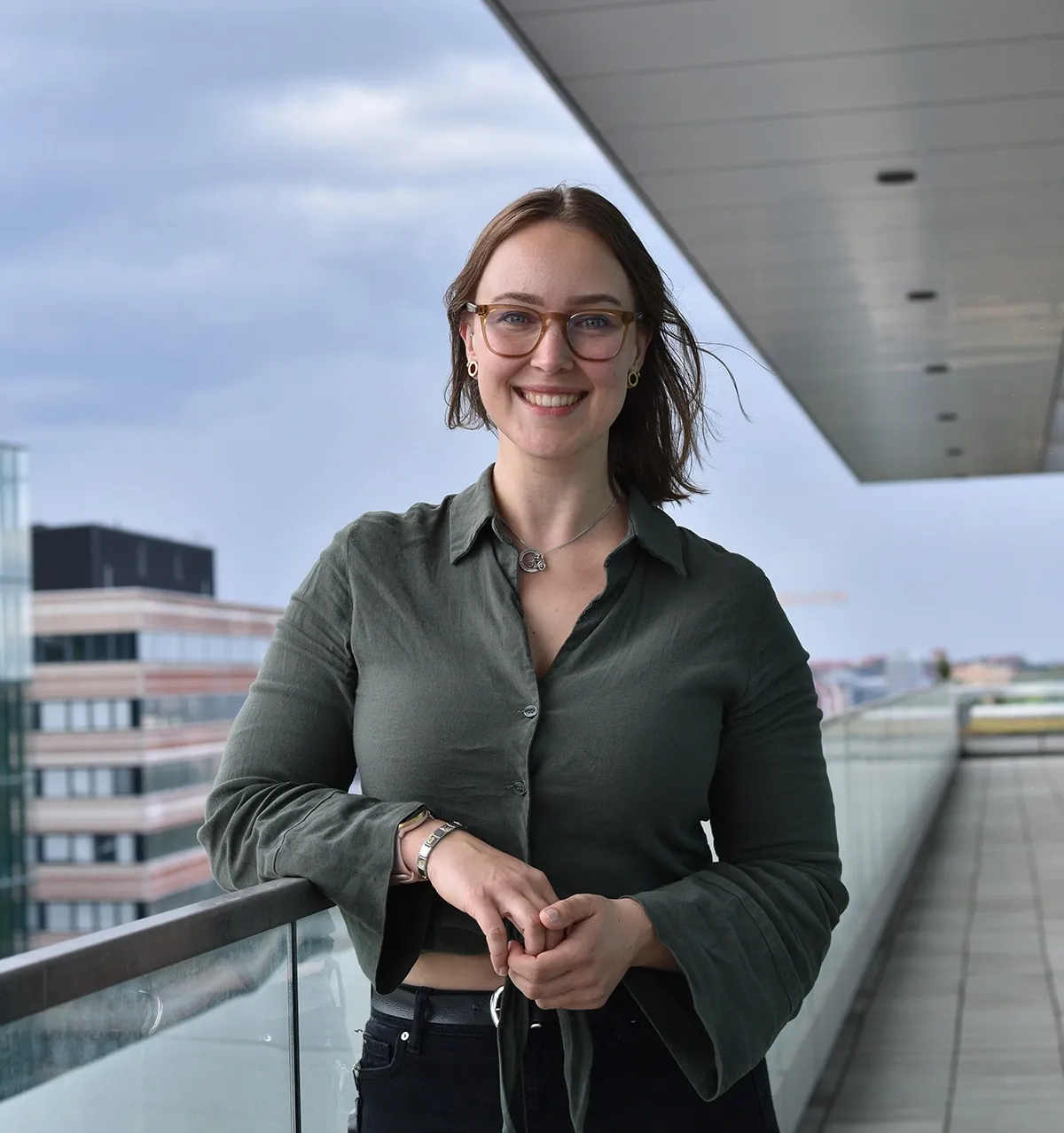New thesis on biological signatures, risk profiles, and prevention of dementia
Hi Vilma Alanko, doctoral student at the Division of Clinical Geriatrics. On June 13 you will defend your thesis ”Translational studies on biological signatures, risk profiles, and prevention of dementia.” What is the main focus of the thesis?

”One of the main focuses of my thesis is to identify different biological signatures in dementia based on cerebrospinal fluid-measured proteins and to find connections between signatures and dementia risk profiles. Further focus of the thesis is to decipher how a multimodal lifestyle intervention influences biological signatures and mechanisms in the brain in different dementia risk models”, says Vilma Alanko, doctoral student at the Department of Neurobiology, Care Sciences and Society, KI.
Which are the most important results?
”We found biological signatures that are associated with amyloid-beta- and vascular/metabolic-related risk profiles of Alzheimer’s disease and dementia, even though we also found that a majority of biological variance in cerebrospinal fluid proteins is not related to disease. In mice, we found that a healthy lifestyle has beneficial effects on the brain and cognition, but that the effects depend on the risk profiles.”
How can this new knowledge contribute to the improvement of people’s health?
”By measuring proteins in the cerebrospinal fluid, we can identify biological signatures that reflect ongoing processes in the brain, which may differ based on dementia risk profiles. In the future, we can hopefully use this information to personalize treatment and intervention strategies, and to understand in what way individuals will benefit from, for example, lifestyle interventions aiming to reduce dementia risk.”
What’s in the future for you? Will you continue to conduct research?
”Working translationally within the field of dementia, which is a public health challenge, has made me increasingly interested in how research findings can be used to develop evidence-based healthcare services. In the future, I wish to be able to use my scientific knowledge and skills to support and improve public health outcomes.”
